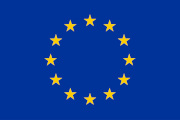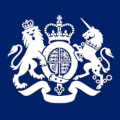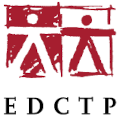Welcome to H3TB
The H3TB project, supported by the EU’s EDCTP2 programme, aims to enhance TB prevention in Namibia by improving research and developing solutions for drug-resistant tuberculosis using cutting-edge whole genome sequencing.
About Us
The Hotspots, households and hospitals: enhanced drug-resistant TB case finding in Namibia (H3TB) project is part of the EDCTP2 programme supported by the European Union that seeks to enhance research capacity and accelerate the development of new or improved Tuberculosis prevention.
This project will investigate Namibia’s case management, pharmacokinetic variability and on-going transmission that have fostered drug-resistant tuberculosis (DR-TB) epidemic leading to a global estimated number of >500,000 new multidrug resistant (MDR) TB cases per year, of which roughly 10% are extensively drug resistant (XDR).
Namibia is a high TB burden country with an incidence rate of 446/100,000 in 2016; about 11,000 new cases per year. 3.9% of new cases and 8.7% of previously treated cases have new multidrug resistant (MDR)-TB. Whole genome sequencing (WGS) has recently been applied to interrogate the complete genetic code of Mycobacterium tuberculosis (Mtb) strains.
Objective of the project
The specific aims of the H3TB project is to:
- Characterise the DR-TB epidemic, in terms of clinical, epidemiological, geospatial, social network and laboratory data, to identify transmission hotspots in two regions of Namibia,
- Evaluate the feasibility of targeted case finding intervention strategies to improve DR-TB control in highly affected populations and
- Develop a transmission model to investigate the potential impact of the case finding intervention strategies on DR-TB incidence in Namibia.
Expected Outcome / Vision
To strengthen DR-TB diagnosis, surveillance and control, inform DR-TB case finding policy in Namibia and regionally and inform resource allocation by identifying high transmission areas and create preliminary data to design a large-scale DR-TB case finding intervention.
Timeline of the Project
We have enrolled around 470 participants in our prospective surveillance study, in which H3TB is nested. We have almost completed a systematic scoping review looking at case finding interventions for drug-resistant tuberculosis. We have allocated three scholarships to Masters students at UNAM to work with us on the project, and employed our staff to work in communities of the Khomas, Otjozondjupa and Ohangwena regions. Enrolment of study participants will start in June 2022.
H3TB Project Details
- To characterise the DR-TB epidemic, in terms of clinical, epidemiological, geospatial, social network and laboratory data, to identify transmission hotspots in three regions of Namibia We have compiled a database of all DR-TB cases during the reporting period and have started sequencing sputum samples to determine M.tb. genomic profiles. We have our Masters students currently working on the genomic and socio-behavioural components of Aim 1. We have our Research Assistants conducting in depth face to face interviews with the patients in the three regions of focus, namely; Otjozondjupa, Ohangwena and Khomas region respectively. We are currently developing a data collection tool for phase 2 of the project to be piloted amongst visitors of TB patients, which will be piloted after approval of the tool by the PIs and programmed into the database. The Research Assistants will be trained, for standardized data collection.We hosted an international lung health conference in November 2022 which was well attended by Namibians and international visitors, and where we showcased H3TB.
We hosted a Research Training course for our Masters students and the PhD student in April 2023.
Our Masters students are registered for their 2nd academic year of study and they are waiting for Ethics approval from the University of Namibia.
Our PhD student has registered at the University of Namibia for a period of three years, from 2023 to 2025.
Our PhD student was invited to attend the African Tuberculosis Bioinformatics Training Program on 14-16 March 2023 at Stellenbosch University in Cape Town. Our Research Assistants are fully trained with regards to the hotspot identification study and the data collection process is ongoing.
The fellow has attended an opening of the new Research Institute at Cape Town, as an invited guest in February 2023.
We have submitted the scoping review of case finding activities for DR-TB cases for publication; we are awaiting feedback from the journal.
The findings of our preliminary whole genome sequencing samples have been published in a peer-reviewed publication.
We have drafted the full protocol of H3TB for peer-reviewed submission. The fellow has presented her work at the TB symposium of the Institut Pasteur in Paris (France), at the World Science Forum in Cape Town (2022) and at the UNAM international Lung Health conference in Windhoek (Namibia) as an invited speaker. - To evaluate the feasibility of targeted case finding intervention strategies to improve DR-TB control in highly affected populations
We have ethics approval for this phase and have drafted the implementation documents. Piloting is planned for July 2023. - To develop a transmission model to investigate the potential impact of the case finding intervention strategies on DR-TB incidence in Namibia
We have our PhD student registered at the University of Namibia and he is currently finalising his proposal for ethics approval from the University. His proposal is titled: “Transmission modelling of drug-resistant TB across three regions of Namibia”. The PhD student will go to Taiwan in 2024 and be trained to develop the transmission model. We are working with the National TB Programme to secure the routine data needed for the model.
Explanation of work carried out by Work Package(WP):
WP1 Formalise research collaboration between UNAM and RCB: the collaboration agreement was signed in November 2020 and it is ongoing.
WP2 Conduct transmission hotspot identification study: we have commenced our prospective surveillance study (in which H3TB is nested) in January 2020 and have created the necessary database and other study implementation tools. We are identifying all drug-resistant TB cases in Namibia each month and we have 693 cases as of 24 May 2023; sequencing of bacterial genomes from sputum cultures from these cases have continued at UNAM. We started with participant enrollment for the hotspot identification study and we have successfully enrolled 53 participants. Participants are from Otjozondjupa, Khomas and Ohangwena regions and the data collection process is ongoing.
WP3 Analyse transmission hotspot identification study: the final analysis will be conducted when the study has been completed; we have submitted abstracts to the Union conference and EDCTP forum with preliminary data.
WP4 Plan and conduct feasibility study: Purchased consumables and awaiting for Ethics approval
WP5 Develop and calibrate transmission model: Our PhD student from Namibia together with our colleagues at National Taiwan University and Imperial College London have already started the modelling component.
WP6 Project management: We have a project coordinator employed on the project since September 2021 to present. As mentioned above, we have ethics approval from UNAM and the submission to the MOHSS research office was approved on 24 November 2021. The UNAM grants officer has become more involved in our respective projects and we are planning two face-to-face training sessions for our financial manager, one in London and one at UNAM, later in 2023.
WP7 Capacity building and training:
Three H3TB Masters students and one PhD student are currently registered at the University of Namibia and they are all awarded H3TB Scholarships. The Masters students are registered for their 2nd academic year, while the PhD student is registered for his 1st year of study. There are 4 Research Assistants who are successfully employed on the H3TB Project since June 2022 to date. In June 2022 we hosted several H3TB database online trainings, the trainers and facilitators being from the Stellenbosch University team. Another training was conducted by the Stellenbosch University team in person on 11 August 2022 namely, Dr. Graeme Hoddinott visited the UNAM laboratory and the TB ward at the Katutura Intermediate Hospital with the trainees, and the team was trained on the qualitative component of the database. All of the above mentioned team members are working on the H3TB Project and they all received a virtual Good Clinical Practice training on 13 June 2022. On 12 August, the Research Asssistants and students received a career development training as well as a virtual Elsevier Clinical Key Physician Demonstration on publications. Our PhD student attended The African Tuberculosis Bioinformatics Training Program on 14-16 March 2023 in Cape Town. On 11-12 April 2023, we hosted a Research training for our students, in order to direct them with regards to their research proposal and the way forward in their study. The facilitators were Prof Mareli Claassens, Dr Graeme Hoddinott and Dr James Seddon respectively. The fellow attended the opening of the new Biomedical Research Institute at Stellenbostch University as an invited guest, for regional networking in March 2023. She also presented at the World Science Forum in Cape Town in 2022 and was subsequently invited to attend the Tsukubu Conference and STS forum in Japan in September 2023. Our project manager enrolled for a women in leadership course at Stellenbosch University which was unfortunately cancelled.
We have compiled a database of all DR-TB cases and it is being updated weekly.
We started sequencing sputum samples to determine M.tb. genomic profiles and it is ongoing.
We have our Masters students currently working on the genomic and socio-behavioural components of Aim 1 and one of them is currently in Germany for a Sequencing training on H3TB sample Data.
We have our Research Assistants conducting in depth face to face interviews with the patients in the three regions of focus, namely; Otjozondjupa, Ohangwena and Khomas region respectively.
We are currently developing a data collection tool for phase 2 of the project to be piloted amongst visitors of TB patients, which will be piloted after approval of the tool by the PIs and programmed into the database.
The Research Assistants are currently being trained for Phase 2 data collection tool, for standardized data collection.
Our PhD student is currently attending a short-term fellowship at the National Taiwan University in from September 2023 to July 2024. We are working with the Namibian National TB Programme to secure the routine data needed for the model.
Our Research Coordinator graduated her second Master degree in Public Health and she is accepted at the University of Stellenbosch and she will be attending a Post Graduate Diploma in Projects Management 2024.
The Principal Investigator is currently attending the UNION CONFERENCE IN PARIS, and a TB Workshop in Geneva as part of the international conferences.
Partners & Stakeholders
H3TB is supported jointly by the UK Medical Research Council (MRC) and the UK Foreign, Commonwealth & Development Office (FCDO) under the MRC/FCDO Concordat agreement (grant number MR/T008814/1). H3TB also is part of the EDCTP2 programme supported by the European Union (grant number TMA2018SF-2462).
The views and opinions of authors expressed herein do not necessarily state or reflect those of EDCTP.
Our Team
 Prof M Claassens (MBChB, BSc Hons, MPhil, PGDip Epi, PGDip M&E, MSc, PhD) is a medical doctor, African research leader, EDCTP Senior Fellow and a Harvard LEAD fellow at the Harvard School of Public Health and Harvard Global Health Institute. Her research focuses on tuberculosis, HIV and Covid-19 within marginalized societies in Southern Africa, aiming to improve implementation gaps by bringing the bench to the bedside and the community. She also feels strongly about engaging young girls and women to make their way in the STEMM fields.
Prof M Claassens (MBChB, BSc Hons, MPhil, PGDip Epi, PGDip M&E, MSc, PhD) is a medical doctor, African research leader, EDCTP Senior Fellow and a Harvard LEAD fellow at the Harvard School of Public Health and Harvard Global Health Institute. Her research focuses on tuberculosis, HIV and Covid-19 within marginalized societies in Southern Africa, aiming to improve implementation gaps by bringing the bench to the bedside and the community. She also feels strongly about engaging young girls and women to make their way in the STEMM fields.
 Ms Libertina Shiweva is a Research Coordinator for the Project. She holds a Masters degree in HIV/AIDS Management and an Honors Degree from the University of Namibia in Population Studies/Geography. She is currently pursuing her 2nd Masters in Public Health with UNAM. Ms Shiweva Research interests are in Infectious diseases and has an in-depth understanding of Demographic and Statistical methods, Monitoring and Evaluation work in both quantitative and qualitative studies. Moreover, Ms Libertina understands spatial data analysis and mapping in the field of GIS and Remote Sensing. She currently Coordinate and Supervise all the Project work for the Project Planning and Implementation.
Ms Libertina Shiweva is a Research Coordinator for the Project. She holds a Masters degree in HIV/AIDS Management and an Honors Degree from the University of Namibia in Population Studies/Geography. She is currently pursuing her 2nd Masters in Public Health with UNAM. Ms Shiweva Research interests are in Infectious diseases and has an in-depth understanding of Demographic and Statistical methods, Monitoring and Evaluation work in both quantitative and qualitative studies. Moreover, Ms Libertina understands spatial data analysis and mapping in the field of GIS and Remote Sensing. She currently Coordinate and Supervise all the Project work for the Project Planning and Implementation.





